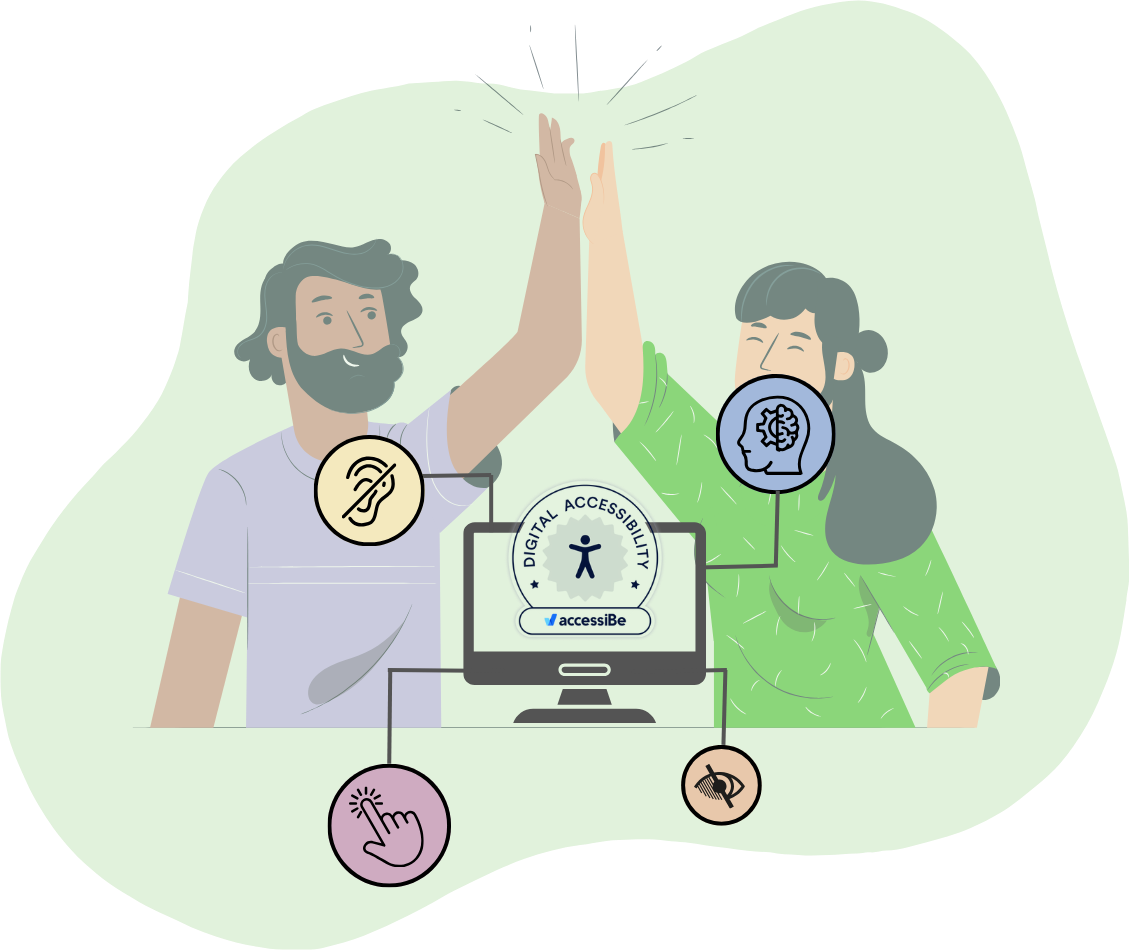Do you know how there are two types of people when packing for a trip? The kind that make lists, itineraries, pack in advance and plan for every contingency and then people that wing it? The people that wing it might get stuck with the wrong sorts of clothes because they forgot to check the weather, or forget important items like their toothbrush or hair brush. They’re so excited about the destination, they forget that their trip will go much more smoothly if they stop and take some time to prepare in advance for what they’ll face when they arrive.

A similar comparison can be made when you’re looking to migrate from one marketing automation platform to another. HubSpot customers sometimes feel this way when they’ve rushed through onboarding or been made to hastily sign an agreement before quarter / month or year end to “close a deal” without really “packing up” their assets or taking time to analyze how their business will scale with HubSpot. Just like packing for a trip or a big move, when you migrate from Marketo to HubSpot, the migration requires more than a little planning to make sure you’re not caught in a blizzard in shorts. Hiring a HubSpot technical architect for your Marketo-HubSpot migration is the best way to make sure that you’re adequately prepared for the journey ahead.
They can dig into your business processes.
While many businesses and their marketing teams are eager to integrate HubSpot and begin marketing right away on the platform, it’s a good idea before signing your contact to engage a HubSpot technical architect long before you sign the deal. Why? Not only could it save you money, but it could save you many headaches and make scaling much simpler. By hiring a technical partner before you sign up for HubSpot, you can dig into your website framework, the other software programs you use and your business processes to determine how the different Hubs can work with your business over time and determine your true cost of adoption. By establishing a relationship with a HubSpot technical architecture consultant, you can get the full picture of the expected investment, plan for it and understand exactly how your existing tools will work with HubSpot to prevent any unforeseen obstacles down the road.
One of the biggest regrets we hear from clients coming from marketing agencies is that they didn’t take the time to explore how HubSpot would scale with their business.
- Maybe they signed up for Marketing Hub Professional only to discover that their website really needed to be migrated over to HubSpot CMS because the configuration, coding and page speed was handicapping their rankings *and* their user experience.
- Maybe they went ahead and migrated their website over to HubSpot CMS, but didn’t account for their industry line of business application that they use every day and how they’d eventually factor that into the website and marketing efforts to seamlessly pass data and avoid double entry.
- Maybe they signed on with a marketing agency, but the agency used Wordpress developers and the Wordpress developer oversold their skills and failed them during the HubSpot CMS migration, so they’re months into paying for a HubSpot Hub that they’re not leveraging.
- Maybe they had tons of data that wasn’t valuable moving forward, but in a rush just moved everything over and got stuck paying for way more data or contact storage than they needed, resulting in faulty or unclear reporting
- Maybe they never configured their reporting dashboard to seriously prove which campaigns are really netting the most ROI.
A technical partner has seen all the SNAFUs when it comes to HubSpot CMS, Marketing Hub Pro and the obstacles that have come along with integrating Operations Hub, Service Hub or Sales Hub with business applications at every level. By engaging a HubSpot Architect from the start, they’ll ask you the right questions about your business processes to plan your HubSpot portal configuration properly from the beginning, audit your business applications, potential integrations and complete an entire discovery process so you can ask the right questions BEFORE you sign your contract with HubSpot. We’re like a realtor for your big move, but a little more useful. (JK who doesn’t love realtors.) Believe me, you’re gonna want someone like us to dig in, because they’re important to the experience you’ll have with HubSpot moving forward and as your business scales.
Why?
They can help you look to the future.
For our next trick? Time travel. You don’t need a Delorean to jump to the future of where your business will go and how it can leverage HubSpot, you just need a really gifted HubSpot Technical Architect. The kind that can recall the 6 trillion things they’ve done at any given point in their career and regularly brainstorms with other HubSpot veteran co-horts to come up with solutions for unique businesses using all of HubSpot’s specialized tools (and then some). They can plan integrations, help you budget for the items that you’ll want to grow with you and help you configure your reporting dashboard so that you can get the insight you need to make the most powerful decisions for the road ahead.
Are our metaphors too much? Because we’re talking GPS style navigation, guys.
Data overwhelm is a huge HubSpot problem that not many businesses proactively plan for. HubSpot is POWERFUL and the capabilities (particularly with the right technical partner ::big grin::) are endless because it all. works. together. And when you plan proactively for how it’ll work for you? There are no limits.

Trust me when I tell you that you can’t build a mansion on a foundation built for a cottage. Scaling requires planning. One of the top complaints that we’ve seen in other consultants, CMOs and agencies that discuss Marketo’s advantage over HubSpot is the lack of reporting functionality and customization to business processes. In fact, we stumbled across this HubSpot vs Marketo YouTube Video from Shift Paradigm (a Marketo partner) where she basically tells YouTube that Marketo is superior to HubSpot by stating,
“Of course it’s a good idea to have everyone in the same system working with the same data, but maybe when one company tries to create and maintain a product to service the use cases to half a dozen departments and their dozens of employees it only facilitates half of what anyone actually wants.”
THIS IS ONE OF THE MOST IMPORTANT TAKEAWAYS OF THIS VIDEO (beside the dig at HubSpot reporting, but we’ll come back to that in a second).
Listen to me carefully:
If you don’t configure your HubSpot properly in advance with a technical architect based on your unique business processes - you’re going to have a harder time. I’m not telling you that you won’t enjoy your HubSpot move or that you’ll fail. It’s just that when you fail to plan for YOUR business and settle on what HubSpot has setup to work for EVERY business, you might not get everything you need as you scale. In fact, you probably won’t get everything you need. And if you start too soon and with the wrong HubSpot Partner? You may even get downright pissed when you try to scale up or really integrate the rest of your business processes.
We love HubSpot Partners. But there are a lot of us now, and not all of us specialize in technical architecture. In fact, you don’t even have the ability to sift through the solutions directory until you at least start a HubSpot trial to see how many partners are marketing focused and don’t specialize in technical consulting. But as an aside - this should be one of the first things that you do when you sign up for a HubSpot trial. And Partners, if you don’t specialize? We suggest partnering with a HubSpot technical architect that does, but it’ll keep customers in your MRR for longer and happier in the long term when you’ve integrated all of their technology and started them off the right way, with thought given to the unique processes inside their business and how their big dreams for scaling in the long term.
Related: Your mom doesn’t work here - an open letter to HubSpot developer
They can supercharge your reporting.
The second biggest HubSpot complaint that she brings up in that video (I hope you watched the whole thing, because it’s valuable) is HubSpot’s reporting. She mentions that Marketo’s reporting is much better and that you can’t report ROI as well with HubSpot reports. This is NOT true. The fact is, you have endless capabilities in HubSpot to configure custom reports and dashboards, but sometimes it’s better to understand your data management and processes from the start in order to best determine how your reporting needs to be set up and tweaked over time. You’re trying to build an empire. Don’t limp through the cheapest onboarding you can find to get started as quickly as possible only to find later you’re struggling to produce effective reporting that really gives you intelligent business data to make growth decisions.
The RIGHT HubSpot technical expert is a whiz at reporting and can not only help you clean up your database before your migration, but configure your HubSpot reports and dashboards (and teach you how to tweak them) so that you’re setup the right way from the start. We can even integrate other pieces of data that live externally in a line of business application.
Once you’re configured, you can deliver all the data to your executive team or view data as the executive team in real time from anywhere without the need for long drawn out meetings. If you’re wondering if I’m telling you that hiring a HubSpot technical architect will improve your quality of life - let me just say: I’m not not telling you that hiring a HubSpot technical architect will improve your quality of life.
It’s not just about more convenient access to your statistics, it’s about sitting down with your team and determining, “Okay, now what?”
It’s about molding HubSpot around your business processes and not the other way around.
Being able to execute really amazing campaigns, create workflows that automate your marketing and execute social media and have it all intertwine with sales, service and operations is a DREAM. That’s a lot of information all funneling through one application. But when you take it all and process it through reporting and integrations in a way that really determines your ROI and helps you work smarter, you can make those important growth decisions more quickly.
There’s no question that you’re eager to get started, but let’s pause before you make a huge business decision that’s going to impact your organization for at least the next year (hopefully much longer if you really invest the right amount of time into onboarding and planning). This is a business decision for an application that is going to interlace itself into the very essence of your business. All departments, all data, and eventually all applications (ideally, we hope you’ll invest into all your integrations) will push data through your HubSpot portal. Take the time to engage a technical expert before you switch from Marketo to HubSpot and long before you determine which HubSpot Hubs are right for you.
You don’t pack light for the biggest move of your life.





